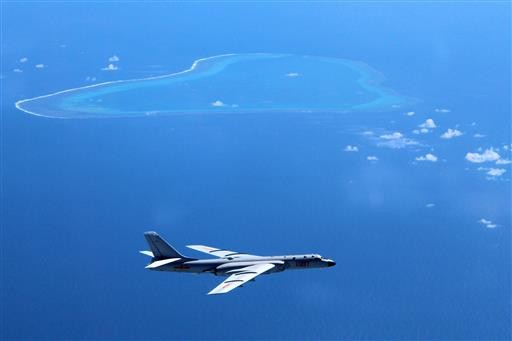Popular Reads
Top Results
Can't find what you're looking for?
View all search resultsPopular Reads
Top Results
Can't find what you're looking for?
View all search resultsSouth China Sea: Indonesia needs new strategy
The recent flare-up in the South China Sea is one of the strongest indications yet of this assertiveness. Indonesia can no longer brush aside the fact that it has become and will continue to be part of the problem.
Change text size
Gift Premium Articles
to Anyone
W
hen the Chinese Communist Party confirmed in 2017 President Xi Jinping as the paramount leader — a status only enjoyed by Mao Zedong and Deng Xiaoping — I predicted that China would become more assertive in the South China Sea and the East China Sea, the two most contested zones in the region. Regional countries should always take this political reality into the equation in their dealings with China. (See my article, “Anticipating China's leadership shake-up”, in The Jakarta Post, Oct. 16, 2017)
The recent flare-up in the South China Sea is one of the strongest indications yet of this assertiveness. Indonesia can no longer brush aside the fact that it has become and will continue to be part of the problem.
Chinese fishing boats and coast guard vessels will not stop intruding into Indonesia’s exclusive economic zone (EEZ), regardless of Indonesia’s diplomatic and naval maneuvers. It must be understood that China’s continued fishing expeditions to this contested zone are meant to back up its claim on the territories and seas enclosed by the so-called nine-dash line.
Since Indonesia derived its sovereign right to manage the EEZ and all resources contained therein from the United Nations Convention on the Law of the Sea (UNCLOS 1982, Article 56) and China’s claim is historical, there is no common ground for negotiation between the two friendly countries.
Therefore, the most viable way of moving forward is to urge China to exercise self-restraint and immediately complete the negotiations on the code of conduct in the South China Sea, taking onboard the concerns of ASEAN claimant states. Negotiations are presently moving at a snail’s pace, regardless of claims to the contrary by both ASEAN countries and China.
If the incursions continue unabated, China may run the risk of pushing the ASEAN states to forge much closer strategic ties with the United States in order to balance and tame China’s assertiveness in the region (Financial Review, Jan. 12).
A containment policy will then reemerge against China, a reality that China may have to face one day.


















